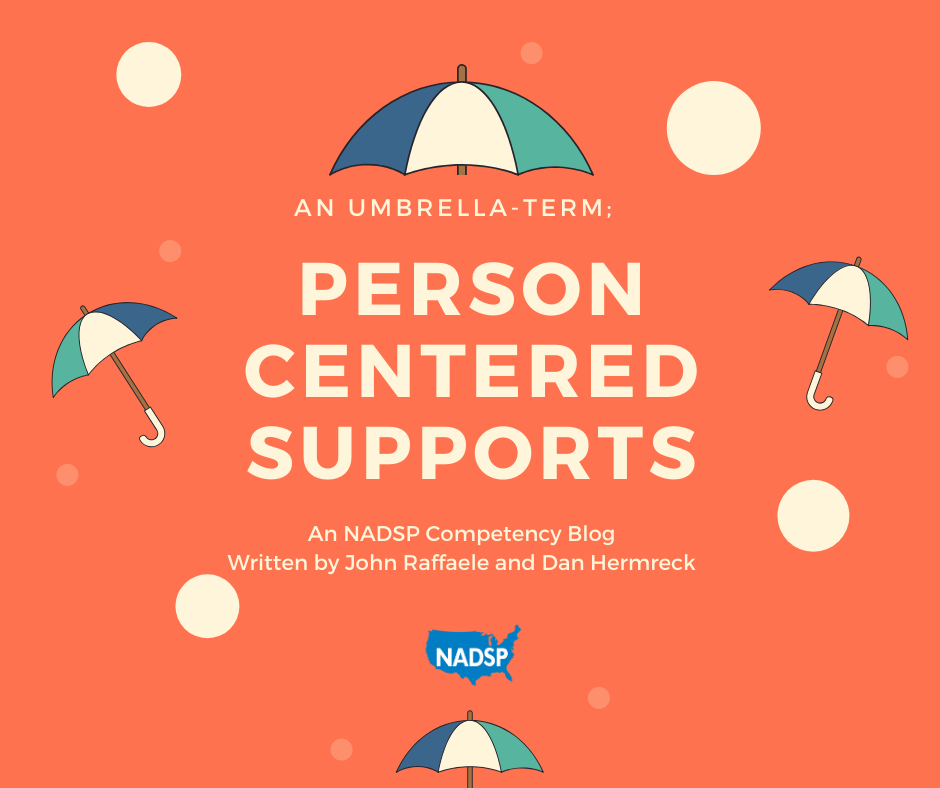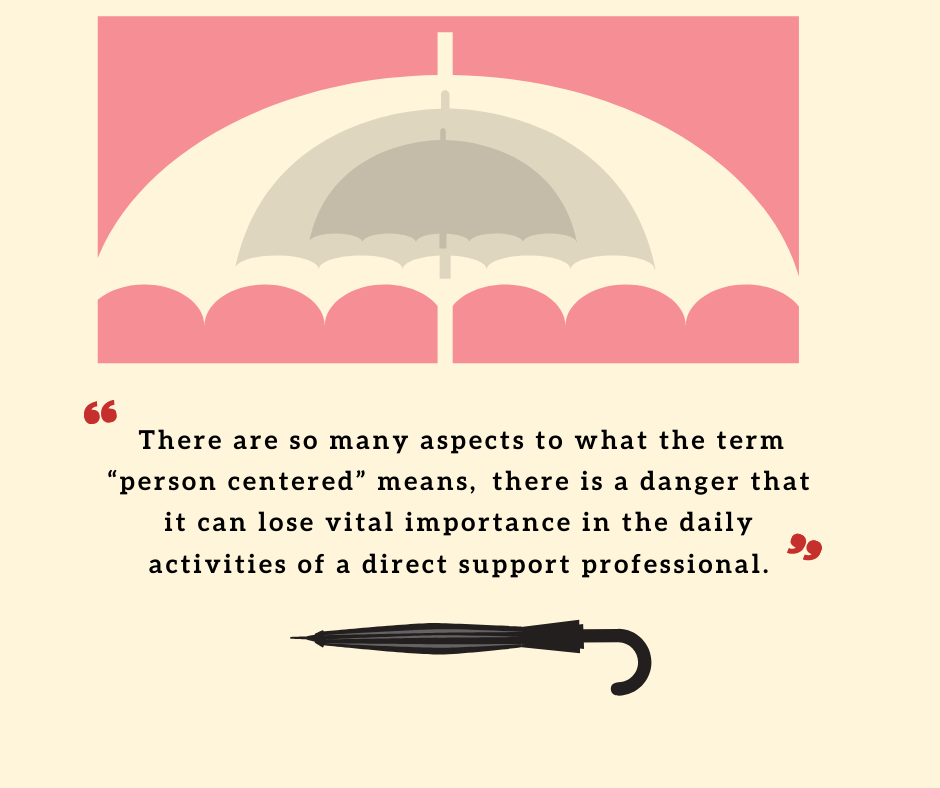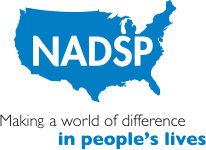
Parasols (umbrellas) were designed to provide shade from the sun. The umbrella was invented more than 4,000 years ago. There is evidence of umbrellas in artifacts of Egypt, Assyria, Greece, and China. They waxed and lacquered their paper parasols to use them for rain. Wow, that innovation allowed these devices to be used for a purpose not intended for the original invention. The rest is history! All of us likely use an umbrella to protect us from rain (and hopefully do not open them indoors).
An umbrella term is a word or phrase that covers a wide range of concepts belonging to a common category. Direct support professional is such a term. There are so many degrees and types of direct support practice; residential support professionals, independent living skills specialists, job/employment coaches, supported living counselors, etc. The most important thing about an umbrella term is that it is often something that we all can easily identify and understand. The drawback with using an umbrella term is that specific things “under” the umbrella term may get “lost” or have less impact in their specific meaning.
Person Centered Support is also an umbrella term. There are so many aspects to what the term “person centered” means, there is a danger that it can lose vital importance in the daily activities of a direct support professional. In the NADSP Code of Ethics the definition of the tenet states, “As a direct support professional my first allegiance is to the people I support. All other activities and functions I perform flow from that allegiance.” That is easy to understand however sometimes difficult for direct support professionals to fully meet. If we add the skill definitions of the NADSP Competency of Person Centered Support it becomes a bit clearer. The NADSP Competency of Person Centered Support states the following;
- The competent DSP provides support to people using a person-centered approach.
- The competent DSP modifies support programs and interventions to ensure they are person centered.
- The competent DSP challenges co-workers and supervisors to use person centered practices.
- The competent DSP is knowledgeable about person centered planning techniques. The competent DSP assists individuals in developing person centered plans.
These skill statements outline the obligation that direct support professionals have in the daily work with those they support. However, there is broadness to the use of the term “person centered” thus, the “umbrella term” it truly is.
If being person centered means to first have allegiance to the people one supports and have knowledge about person centered practice, we must teach and guide the direct support professional to the actions and functions of true person centered practice. The NADSP believes that using all the NADSP competencies and applying the Code of Ethics then DSPs will automatically be pointed in a person-centered path.
Participant Empowerment
Communication
Assessment
Community and Service Networking
Facilitation of Services
Community Living Skills & Supports
Education, Training & Self-Development
Advocacy
Vocational, Educational & Career Support
Crisis Prevention & Intervention
Organizational Participation
Documentation
Building and Maintaining Friendships & Relationships
Provide Person Centered Supports
Supporting Health & Wellness
All of these competencies describe skills that can, and should, be applied in a person-centered way. When communicating, we make adjustments to the communication style of the person we are communicating with. When networking with other parts of the community or other services, we do so based on the needs and desires of the person we are supporting. When helping someone to find a job, or an educational opportunity, we work in partnership to find an opportunity that is a good fit for them, based on their skills and interests. When trying to prevent a crisis or support health and wellness, we take each person’s unique history into account.
We have spent many months writing articles and broadcasting webinars that are associated with diving deep into the meaning and definitions of each of the competency areas. As we carefully review each of these competency areas and skill statements and if we apply the NADSP Code of Ethics, our person-centered umbrella becomes wide and strong. Person centered support is an umbrella term that protects us from system-centered practice and allows direct support professionals the opportunity to work with and along-side the people they support. This is one umbrella that is ok to open indoors!
Please join us for the companion webinar to this blog on October 30th at 12PM EST. For more information click here.
